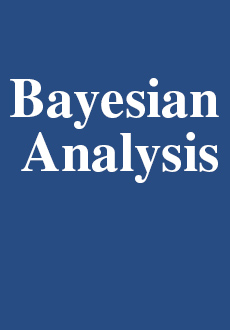Abstract
We study Bayesian approaches to causal inference via propensity score regression. Much of Bayesian methodology relies on parametric and distributional assumptions, with presumed correct specification, whereas the extant propensity score methods in Bayesian literature have relied on approaches that cannot be viewed as fully Bayesian in the context of conventional ‘likelihood times prior’ posterior inference. We emphasize that causal inference is typically carried out in settings of mis-specification, and develop strategies for fully Bayesian inference that reflect this. We focus on methods based on decision-theoretic arguments, and show how inference based on loss-minimization can give valid and fully Bayesian inference. We propose a computational approach to inference based on the Bayesian bootstrap which has good Bayesian and frequentist properties.
Funding Statement
Stephens, Moodie and Schmidt acknowledge support from the Natural Sciences and Engineering Research Council of Canada (NSERC). Nobre acknowledges support from Conselho Nacional de Desenvolvimento Científico e Tecnológico (CNPq), Brazil, and Fundação de Amparo à Pesquisa do Estado do Rio de Janeiro (FAPERJ), Brazil. Moodie holds a Canada Research Chair (Tier 1) in Statistical Methods for Precision Medicine, and further acknowledges support from a chercheur de mérite career award from the Fonds de recherche du Québec-Santé.
Acknowledgments
The authors thank the Editor, Associate Editor and two referees for suggestions which have improved the paper considerably. The authors would also like to thank Pierre Jacob, Yu Luo and Vivian Meng for comments on earlier drafts.
Citation
David A. Stephens. Widemberg S. Nobre. Erica E. M. Moodie. Alexandra M. Schmidt. "Causal Inference Under Mis-Specification: Adjustment Based on the Propensity Score (with Discussion)." Bayesian Anal. 18 (2) 639 - 694, June 2023. https://doi.org/10.1214/22-BA1322
Information





